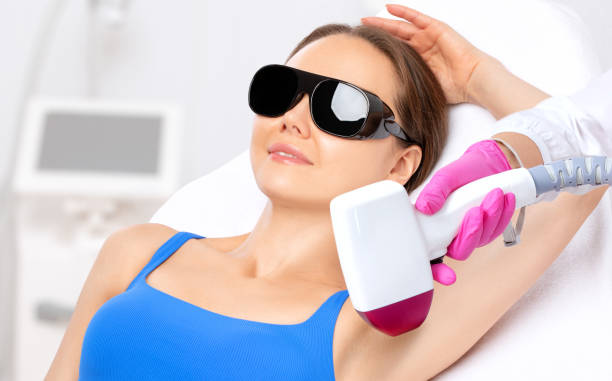Laser Hair Removal Abu Dhabi has become one of the most sought-after solutions for those seeking long-term hair reduction. It offers a safe, effective, and convenient alternative to traditional hair removal methods like waxing, shaving, and plucking. As with any cosmetic procedure, understanding the importance of aftercare is essential to ensure optimal results and a smooth recovery process. While the treatment itself is designed to be minimally invasive, proper aftercare plays a crucial role in maintaining skin health, preventing complications, and maximizing the longevity of the results.
Understanding the Importance of Aftercare in Laser Hair Removal
The Role of Aftercare in Achieving Optimal Results
Post-treatment care is not just a supplementary step; it is integral to the overall success of laser hair removal. Proper aftercare helps to soothe the skin, reduce inflammation, and prevent adverse reactions. It also promotes faster healing and ensures that the skin responds well to the laser sessions. When individuals follow recommended aftercare protocols, they increase the likelihood of achieving smooth, hair-free skin that lasts longer.
Common Skin Responses After Laser Hair Removal
It’s normal for the skin to experience certain reactions following laser treatment, such as redness, swelling, or mild discomfort. These responses typically subside within a few hours to a couple of days. Proper aftercare helps manage these symptoms effectively and minimizes the risk of complications like hyperpigmentation or skin irritation.
Essential Aftercare Tips for Laser Hair Removal in Abu Dhabi
Keep the Treated Area Clean and Hydrated
Maintaining cleanliness is vital to prevent infections. Gently cleanse the treated area with mild, fragrance-free cleansers and avoid harsh soaps. Hydrating the skin with a gentle, non-comedogenic moisturizer helps keep the skin barrier intact and alleviates dryness or tightness caused by laser treatment.
Avoid Sun Exposure
Sun exposure can exacerbate skin sensitivity and increase the risk of pigmentation changes. It is recommended to stay out of direct sunlight and use broad-spectrum sunscreens with high SPF if outdoor activity is unavoidable. Wearing protective clothing and seeking shade also help shield the skin during the healing phase.
Refrain from Using Irritants or Harsh Products
Post-procedure skin is more sensitive and susceptible to irritation. Avoid using exfoliants, retinoids, or other strong skincare products until the skin has fully healed. These products can aggravate redness or cause adverse reactions when applied to treated skin.
Avoid Hot Water and Heat-Based Activities
Hot showers, saunas, steam rooms, and vigorous workouts that induce sweating should be avoided immediately after treatment. Excessive heat can aggravate inflammation and delay healing, so it’s best to opt for lukewarm water and gentle activities during the initial recovery period.
Use Recommended Topical Treatments
Your skincare professional may suggest specific topical treatments to soothe the skin, reduce redness, or prevent infection. Always follow their guidance and avoid applying unapproved products to the treated area.
Managing Common Post-Treatment Skin Reactions
Redness and Swelling
Mild redness and swelling are typical and generally resolve within a few hours or days. Applying ice packs or cold compresses can help reduce discomfort and inflammation. If prescribed, topical anti-inflammatory creams can also assist in calming the skin.
Discomfort or Mild Pain
Some discomfort might be experienced, especially in sensitive areas. Over-the-counter pain relievers can provide relief, but it’s essential to consult with your skincare provider before use.
Skin Discoloration
Temporary hyperpigmentation or hypopigmentation may occur, especially in individuals with darker skin tones. Proper sun protection and avoiding picking at the skin can prevent worsening of pigmentation issues.
Long-Term Aftercare and Maintenance
Follow-Up Sessions
Laser hair removal typically involves multiple sessions spaced over several weeks. Adhering to the recommended schedule ensures comprehensive hair reduction. Consistent aftercare between sessions helps maintain skin health and supports continued hair thinning.
Lifestyle Considerations
Maintaining a healthy skincare routine and avoiding habits that irritate the skin can prolong the benefits of laser treatment. Regular moisturizing, sun protection, and gentle skincare help sustain the results.
Monitoring Skin Changes
Keep an eye on your skin’s response throughout the treatment course. Any persistent or unusual reactions should be promptly discussed with your skincare specialist to adjust aftercare routines if necessary.
When to Seek Medical Advice Post-Treatment
While most aftercare steps are straightforward, certain signs may require professional consultation. These include severe or prolonged redness, blistering, signs of infection, or unexpected skin changes. Prompt medical advice ensures appropriate management and prevents complications.
FAQs About Laser Hair Removal Aftercare
How long does aftercare last following laser hair removal?
Aftercare steps are most critical during the first few days to a week post-treatment. However, ongoing sun protection and skin maintenance are essential throughout the entire treatment course and beyond to preserve results.
Can I use makeup or skincare products immediately after laser hair removal?
It’s best to avoid applying makeup or potentially irritating skincare products immediately after treatment. Wait until the skin has fully calmed and follow your skincare professional’s recommendations.
How can I soothe my skin if I experience redness or irritation?
Applying cold compresses, using gentle moisturizers, and avoiding irritants can help soothe the skin. If discomfort persists, consult your skincare provider for suitable topical treatments.
Is it necessary to avoid waxing or plucking between laser sessions?
Yes, to achieve the best results, avoid waxing, plucking, or using depilatory creams between sessions. Shaving is usually permitted and encouraged, as it does not interfere with laser treatment.
Final Thoughts
Yes, aftercare is a vital component of the laser hair removal process. Proper post-treatment routines help optimize results, protect the skin, and minimize discomfort. By following recommended guidelines, individuals in Abu Dhabi can enjoy smoother skin, reduced hair growth, and a more satisfying overall experience.
Understanding the significance of aftercare empowers you to take an active role in your skincare journey. It enhances the longevity of the results and ensures that your skin remains healthy and radiant long after the procedure.
 WhatsApp Us Now
WhatsApp Us Now







